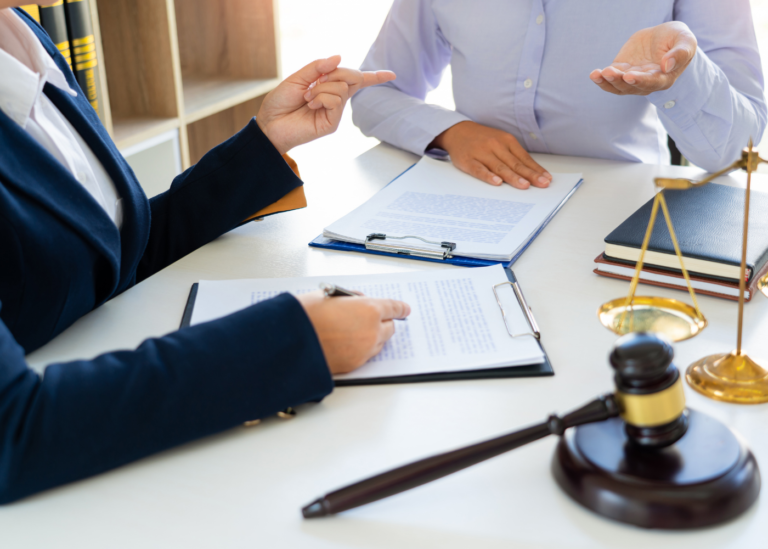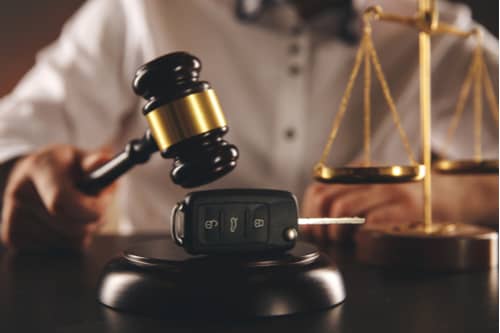If you’ve ever seen those commercials for personal injury lawyers on television, they love to talk about their slip and fall cases. They brag about how much money they win for their slip and fall clients. However, for the most part, slip and fall cases don’t cause major injuries. Sure, there are times when a slip and fall victim does suffer broken bones or other serious injuries. These cases are rare.
Our Marietta slip and fall attorneys represent plenty of clients who were hurt in a slip and fall accident. They’ve seen some run-of-the-mill cases, but they’ve also seen their share of interesting ones too.
Here, we’ll talk about some of the common causes of slip and fall cases. We’ll also touch on the type of injuries each case usually causes.
What Qualifies as a Slip and Fall Case?
Anytime somebody falls and hurts themselves, it’s considered a slip and fall. You don’t technically need to slip. If you’re on someone else’s property and fall, they will probably be liable for your injuries.
As Marietta slip and fall attorneys, we see more than our fair share of these cases. Some of the more common types of slip and fall cases include the following:
- A person is at the grocery store and slips on a wet floor
- You could be walking through a construction site and fall in a hole or trip over a piece of equipment
- You could walk through a parking lot and fall in a hole that should’ve been filled in
- A person could be at a friend or neighbor’s house and fall on a piece of loose carpet
Of course, there are many other ways a person could suffer a slip and fall. These are just some of the more common ways. Regardless of how your accident happens, there’s a good chance you’re going to need a Marietta slip and fall attorney. They can help prove the defendant was negligent and get you compensation for your injuries.
Your Marietta Slip and Fall Attorney Will Have to Prove Negligence
If you do get hurt in a slip and fall accident, you may be entitled to damages. In order to collect any compensation, you have to prove the defendant was negligent. This isn’t as easy as it sounds. You would think that the property owner would be automatically responsible for any injuries that occur on their property. That isn’t the case.
In order to prove negligence, your personal injury attorney in Marietta, Georgia is going to have to demonstrate the following:
Duty of Care
Proving the defendant owed you a duty of care is usually simple. Every property owner is required to keep their premises safe. If they are aware of a condition that is unsafe and they fail to correct it, they can be found liable for any injuries. The same is true for someone who owns or rents a residential property. Just because someone isn’t a business owner, that doesn’t mean they’re off the hook.
Breach of Duty
You have to show that the defendant breached their duty of care. If a property owner is aware of a dangerous condition and fails to fix it, they will be held liable. The same is true if they tried to correct the issue but did a poor job.
For example, imagine you’re at a person’s house for a birthday party. You trip and fall on a piece of carpet thread on their living room floor. If they say they tried to fix it, or you can tell they covered it up somehow, they may still be held liable.
Damages
Your personal injury attorney in Marietta, Georgia is going to have to prove that you were injured. One thing we always tell our clients is that it’s not enough that you were involved in an accident. If you weren’t injured, you have no standing to sue.
Causation
The last thing you’ll need to prove in a negligence action is that your injuries were caused by the defendant’s actions – In other words, if your injuries were caused by something other than your slip and fall, you can’t collect damages. It’ll be your attorney’s job to prove this element.
Once you’ve proven negligence, it shouldn’t be hard to convince the defendant to settle.
You Will Have to Name the Property Owner and Their Insurance Carrier in Your Lawsuit
One thing you need to keep in mind is that you’re not just pursuing the defendant. You’re also pursuing their insurance company. More often than not, the property owner won’t have to pay anything out of pocket. They pay for insurance for this reason. This is especially true for a commercial property owner.
Business owners pay a lot of money for their general liability insurance. If someone gets hurt on their property, their insurance policy should cover it. In the rare case that the defendant’s insurance policy doesn’t cover your damages, then the defendant would be personally liable for the difference.
At least if you hire a Marietta slip and fall attorney, they’ll know to sue both parties. There could be other parties they need to sue as well. For example, if a person rents their property, you may need to name their landlord in the lawsuit. Or if a store pays an outside company to wax and clean their floors, you may need to name them in your suit. Your attorney is well versed in the court rules when it comes to adding parties to a complaint.
Contact a Skilled Marietta Slip and Fall Attorney Today
If you fell and got hurt on someone else’s property, you probably have a claim for damages. The only way to know for sure is to talk to an experienced personal injury attorney in Marietta, Georgia. They can sit down and listen to your story. Let them know what happened and if you’ve heard anything from the insurance company so far. They’re also going to answer any questions you may have.
The best thing to do is to call our office as soon as possible after your fall. Let us know you want to take advantage of your free, initial consultation. Come in for a half hour and make every minute count. By the end of this meeting, you should have an idea of whether you want to retain our services or not. If so, you don’t have to worry about paying anything upfront. The consultation is free, and you don’t have to pay a dime until your case is resolved.










